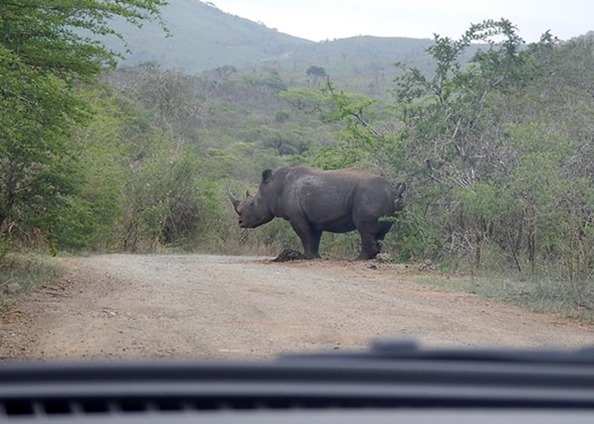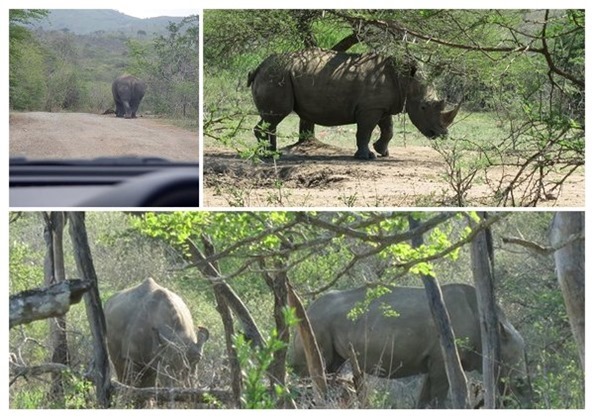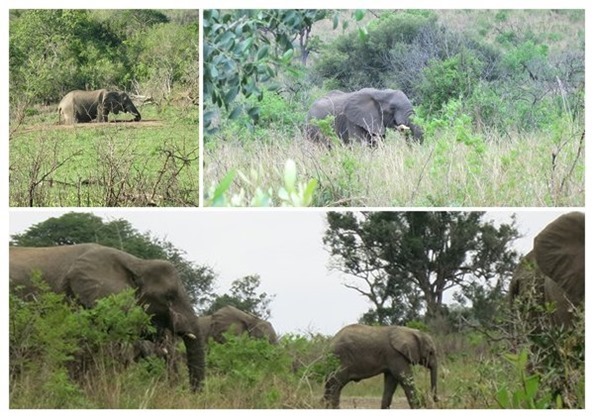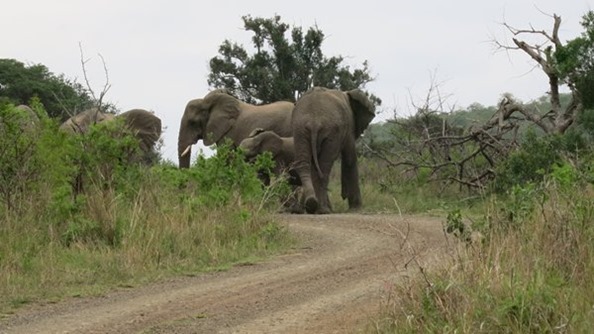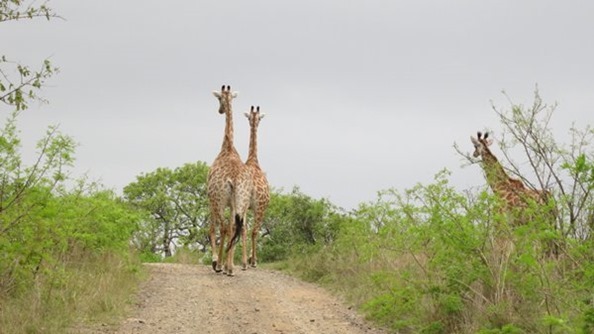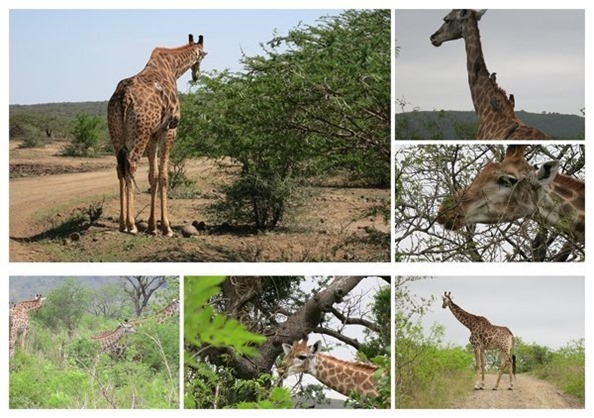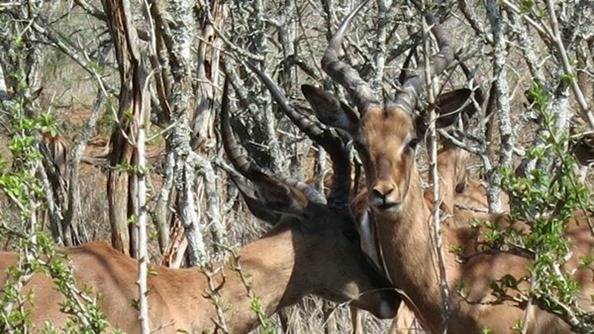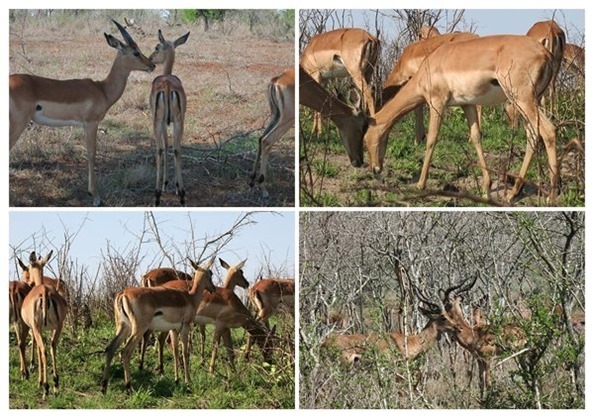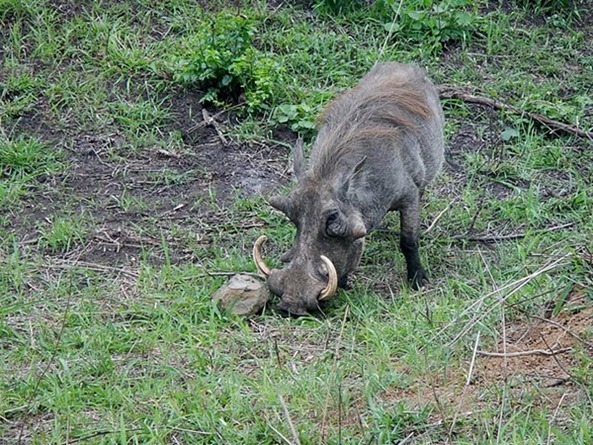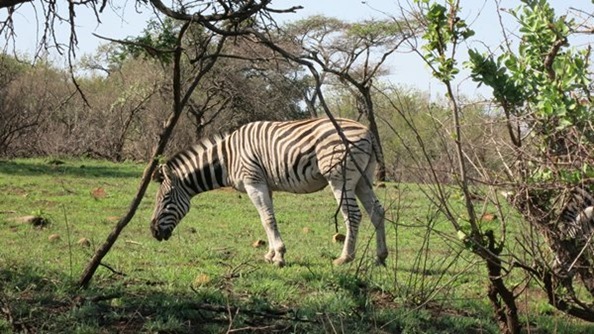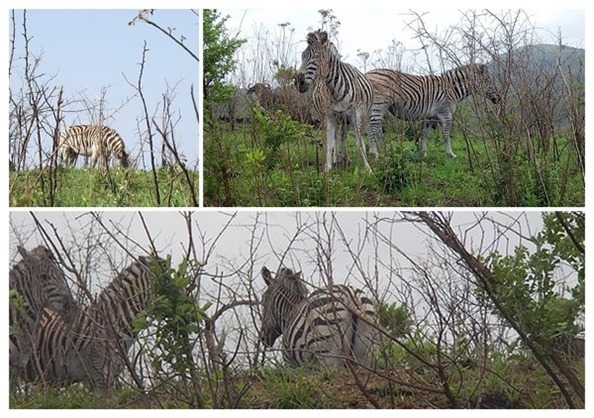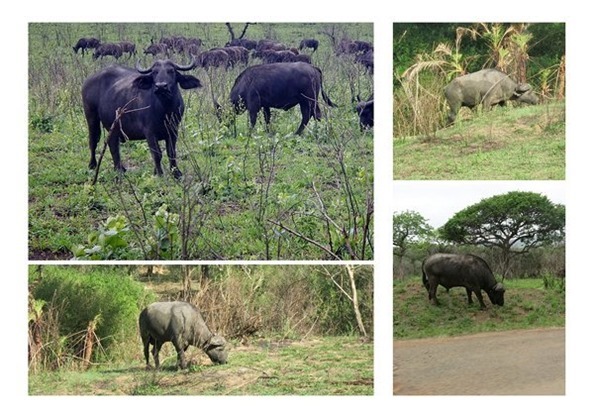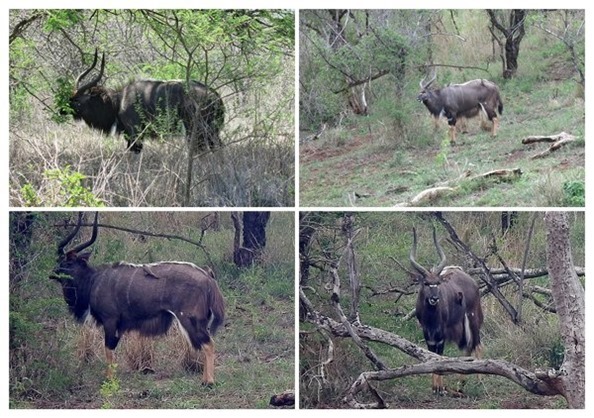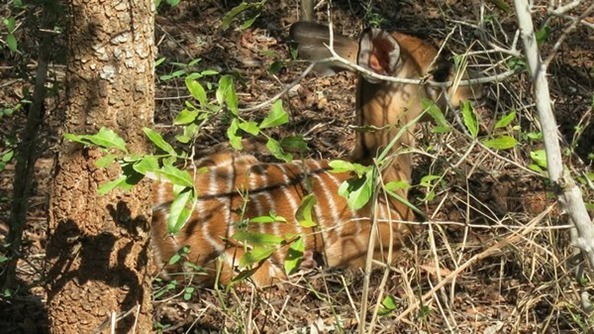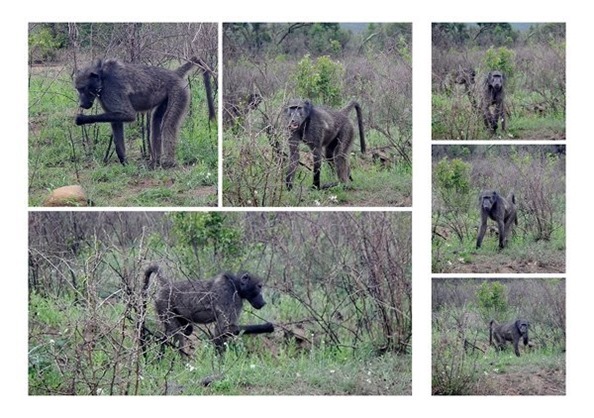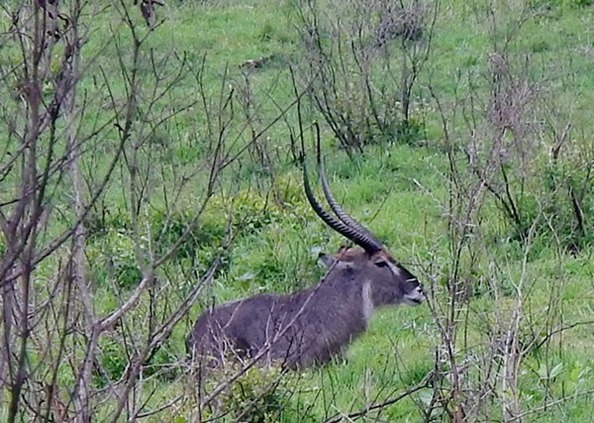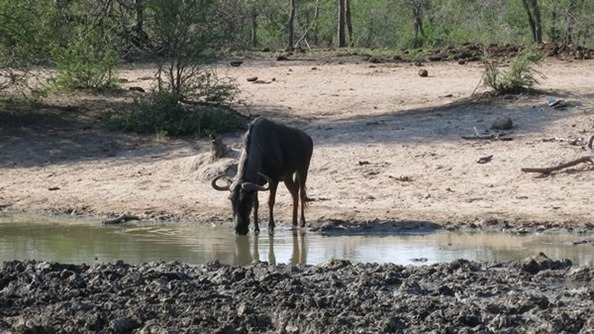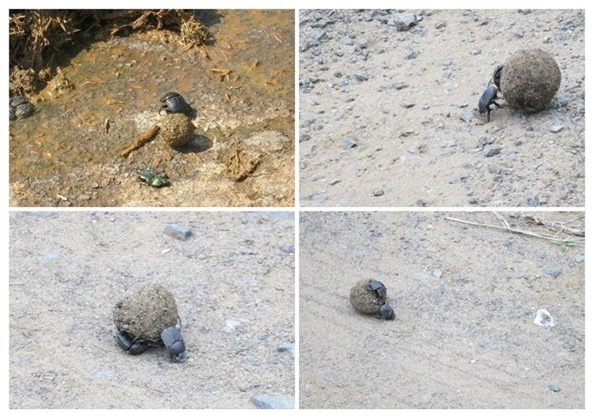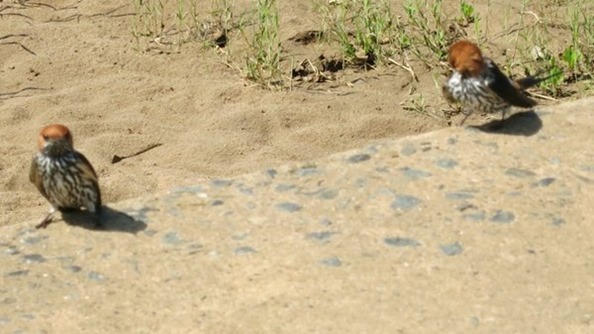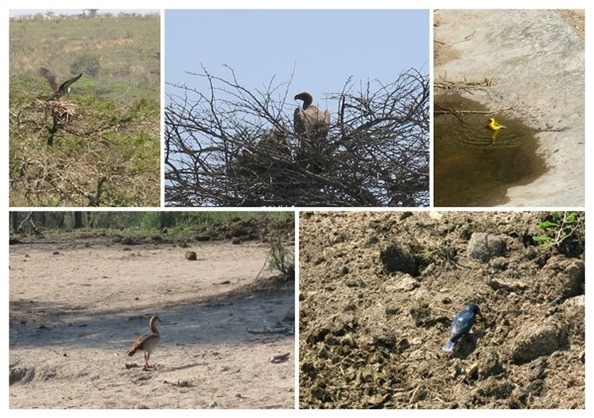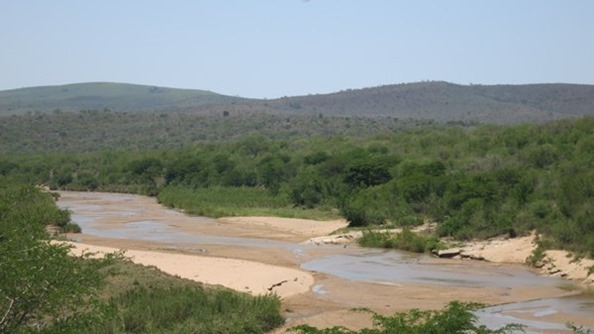South African Road Hazards

|
There are 2 game
parks iMfolozi and Hluhluwe only just over a 1 hour drive away that immediately
immerse you in a totally different world from the shopping malls and industry of
Richards Bay. iMfolozi was set up in 1895 and is the oldest park in South
Africa, originally created for the local Zulu king as his private hunting
ground, a bit like the New Forest....well only a bit.
We came around a corner in our little Nissan Micra to find this ton and a half white rhino scent marking his territory. He proceeded to vigorously kick his pile of ordure around to demonstrate this was his bit of bush ...and road. We decided on waiting until he disappeared into the bush.
The Northern White Rhino is one of the success stories of conservation. Their numbers were reduced to about 50 worldwide at the start of the century but there are now estimated to be over 17,500. iMfolozi is where this success story started, and the park gains significant income by exporting animals to other game parks across Africa and zoos across the world. It is thought that the name came from Dutch 'wijd' meaning wide through a mistranslation into English 'white'. The White Rhino is a grazer with a wide, square lipped mouth and a long head carried low for cropping grass. Its cousin the Black Rhino has been less lucky. It browses on trees and lives in the bush itself, but its numbers continue to decline and it is seriously threatened. Habitat loss is the greatest cause of this decline but poaching remains a big problem. Even in these 2 well protected parks with plenty of wardens and electric fencing, poachers still succeed in killing rhinos for their horns every year.
There are elephants in abundance and they too have no respect for the rights of the car driver. We were a little worried when we became virtually surrounded by a herd of about 20 elephants, including 2 which had the tell tale dribble of scent near their eye showing that they were in musk...when they become irascible and unpredictable.
Perhaps the most enthralling sight was a herd of 13 female and immature giraffe. They are not only startlingly big when you stumble upon them but also incredibly graceful as they wander along grazing the bush.
They carry ox-pecker birds on their necks and backs which rid them of tiresome ticks and other parasites. Giraffes get darker as they get older, particularly the males which are solitary; rounding a bend in the road and meeting one of these enormous solitary fellows is a breath-taking experience.
The animals are surprisingly unperturbed by the presence of a small white car and even animals like impala will graze contentedly within feet..
There are 130,000 impala at iMfolozi and their neat little hoof prints are everywhere to be seen.
Perhaps the most amusing animals are the warthogs which
snuffle about in small groups like contented pigs. Not as big as a domestic pig
they look fearsome but completely ignored us so we were able to stop
within a few feet of this chap. Definitely one of our favourite
animals.
Other animals we managed to photograph were.....
zebra, often in the company of buffalo, wildebeest, rhino or impala,
buffalo in herds or solitary and grazing with other species,
this handsome male nyala....(with ox-peckers on its back),
....this most beautiful nyala fawn hidden in the brush by its mother,
baboons eating flowers,
the solitary eland,
wildebeest at the water hole,
.....the ever industrious dung beetle keeping the roads clean for the motorist on safari, they can fly at tremendous speed,
and just a few of the wonderful birds of the savannah.....
lesser striped swallows,
eagles, vultures, geese, weaver birds and fabulous starlings were just a few.
The African hoopoe, which is unexpectedly large, was too fast for us to photograph.
The scenery is mostly bush with a varied tree cover but with the valleys of the Black and White iMfolozi rivers providing water even in the dry season when we visited.
Crocs and hippo live in these rivers but we failed to see either...not that we investigated too hard as both are extremely dangerous. We hope to see them when we visit one of the coastal wetland parks.
We stayed 2 days in 2 different camps in the park and had a most memorable time. Not to be missed by future ocean migrants! |
